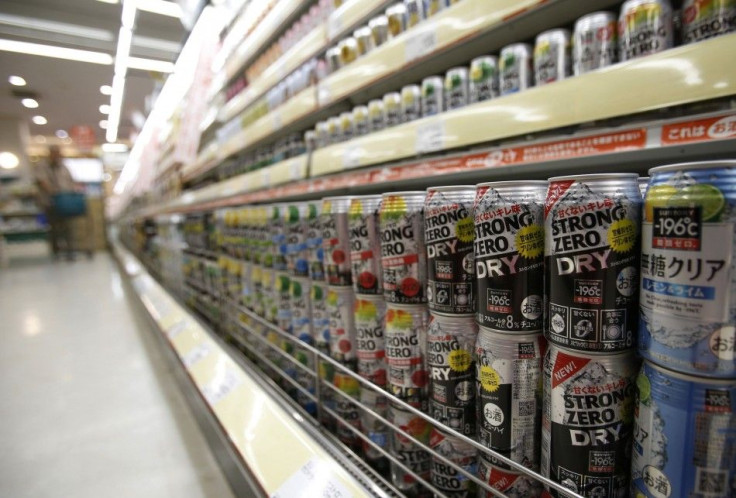Troubles at Home Cause Alcoholism in Returning National Guardsmen

Experts from Columbia University have discovered that civilian stressors such as family breakdown, unemployment, money, and legal troubles cause National Guardsmen back from deployment to engage in alcohol abuse more than twice than their civilian counterparts, a report on Medical News Today said.
The report said that 14 per cent of National Guards were alcohol dependent, compared with 6.8 per cent of the civilian population in 2012.
The researchers' findings were published in the American Journal of Preventive Medicine. Over 1,095 soldiers from the Ohio National Guard, who had toured in Iraq or Afghanistan, were surveyed by the research.
The researchers interviewed soldiers three years after the end of their tours regarding their alcohol use as well as stressors relating to their previous military duties and problems encountered during their transition to civilian life.
The researchers found that 60 per cent of the soldiers went through war-related traumas, 36 per cent encountered civilian stressors upon coming home, and 17 per cent were sexually abused during their tenure abroad.
But while 60 per cent of the participants had battle-related traumatic experiences during their tours, these experiences had nothing to do with their risk of alcohol abuse. Those who were found to be at higher risk for developing alcohol use disorders were soldiers who had encountered "at least one civilian stressor" and sexual harassment.
Magdalena Cerda and Professor Karestan Koenan, lead investigator and senior author of the study, respectively, said the findings emphasised on the need for returning National Guardsmen to be guided by mental health professionals in reintegrating into society and dealing with employment and relationship changes. This way, alcohol use disorders can be prevented and reduced.
A great volume of literature has been written on the effects of deployment on the psychological well-being of army men as well as its link to alcohol misuse in the group. But the Columbia study is among the few studies that highlight the overwhelming effects of civilian life stressors on returning military men.
Data from the National Household Survey on Drug Abuse (NHSDA) revealed that 56 per cent men and 41 per cent women out of 30 million American veterans aged 18 and older use alcohol, the National Council on Alcoholism and Drug Dependence, Inc. (NCADD) reported.
The NCADD also stated that military records showed that the number of soldiers seeking treatment for alcohol use disorders in 2009 were up by 56 per cent since 2003, the year the Iraqi war began.
Military men who found themselves trapped in a cycle of alcohol abuse, whether due to civilian troubles or "shell shock," can benefit from alcohol addiction treatment medications like naltrexone.
BioCorRx, Inc. (OTCQB: BICX), a company based in Santa Ana, California, is engaged in the licensing and distribution of its Start Fresh Program which significantly curbs an alcoholic's cravings through the use of a biodegradable, time-release naltrexone implant.
The implant, which is utilised by a number of rehabilitation clinics across the United States, releases naltrexone into the body for several months. Naltrexone is a type of antagonist drug that can prevent addicts from experiencing "pleasure feelings" in the brain during opiate and alcohol consumption.
With cravings removed or significantly reduced, military men or women undergoing alcohol abuse treatment can address their personal and social struggles through a one-on-one life coaching program-also a crucial component of BioCorRx, Inc.'s Start Fresh Program.





















